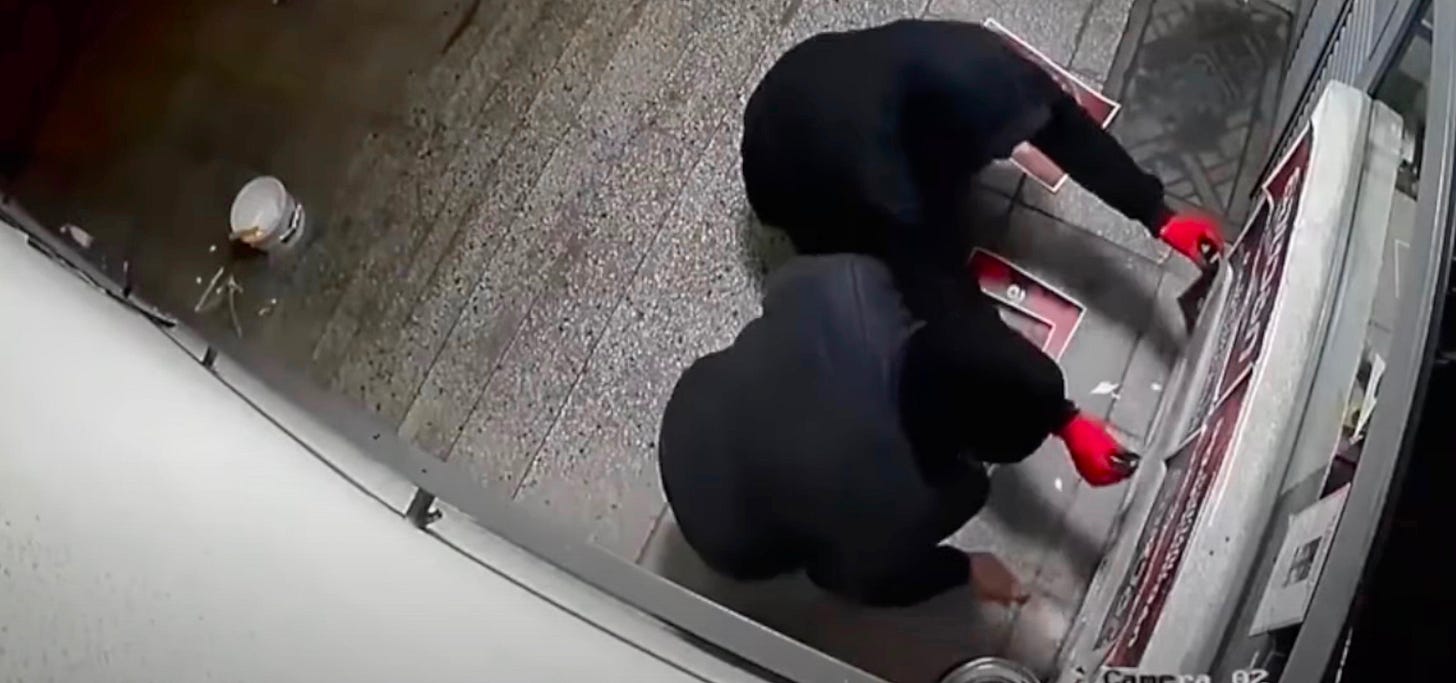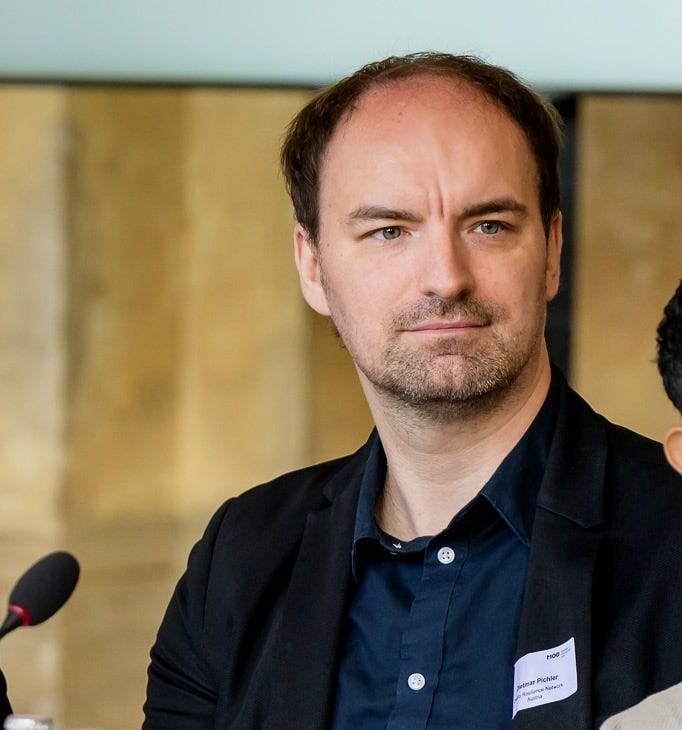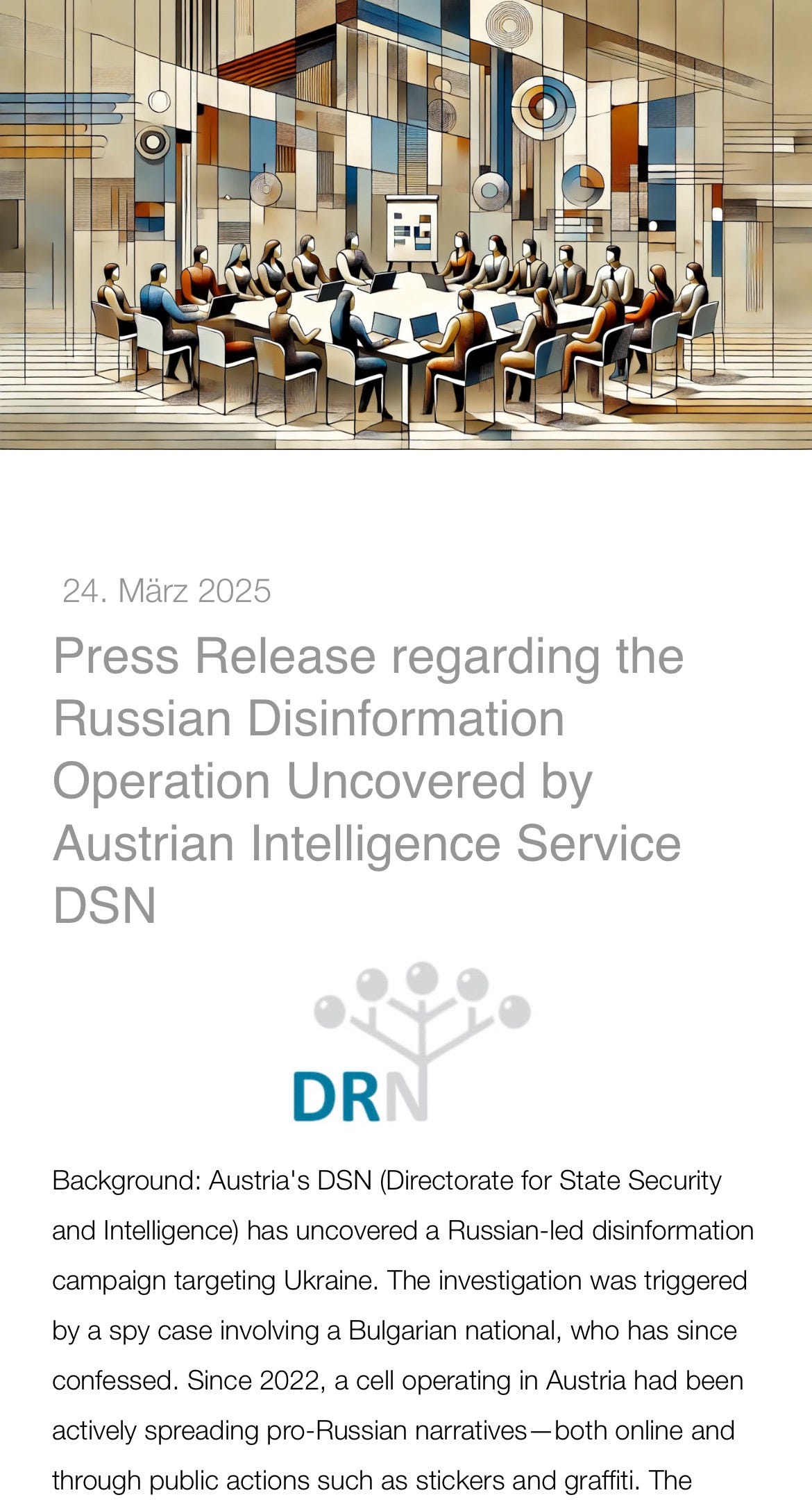THROWAWAY AGENTS: A Q & A with Dietmar Pichler on the Bottom Feeders of Russian Propagandists
Disinformation analyst Dietmar Pichler explains why Russia is increasingly using 'throwaway agents' to do its dirty work
***Please take out a membership to support the light of truth.***

Author’s note: In a recent Hot Type column for Byline Supplement, I learned of the term ‘throwaway agents’ from Vienna-based disinformation analyst Dietmar Pichler, the founder of the Disinfo Resilience Network.
In that column, he told me about how Russian information warfare operations are often carried out by ‘throwaway agents’ — amateurs who might be friends with Russian spies, who may get a call and for a few dollars or crypto, perform cheap tricks to poison the waters of truth and reality. He explained that some may not even know who they are working for and many are not Russian.
I reached back out to Pichler, so we can learn more about these saboteurs, as Russia is increasingly relying on them to alter reality in the remaining democratic nations, while maintaining the ongoing morphine drip of lies in captured countries.
If the captured countries stand any chance to overthrow their puppet governments, it requires a clear understanding of how these ‘throwaway agents’ operate.-Heidi Siegmund Cuda for Bette Dangerous
THROWAWAY AGENTS: A Q & A with Dietmar Pichler on the Bottom Feeders of Russian Propagandists
Heidi Cuda: I am hearing more and more from pro-democracy people seeking help in distinguishing Russian propagandist infiltrators from actual activists, and can you help further describe throwaway agents?
Dietmar Pichler: Russia is increasingly using so-called "throwaway agents" —individuals mostly recruited online and motivated by financial incentives — to carry out specific tasks. These tasks can include sabotage, physical attacks, propaganda efforts, or serving as network hubs for other throwaway operatives.
Heidi Cuda: Describe how they differ from the garden variety Russian ‘influencer.’
Dietmar Pichler: Throwaway agents share some characteristics with agents of influence, who are often consciously or unconsciously recruited, paid, or otherwise persuaded to spread Russian narratives. In both cases, these individuals are typically not Russian citizens, making them less suspicious and allowing them to operate with greater freedom.
Heidi Cuda: Can you offer an example of how they operate?Dietmar Pichler: In Ukraine, for example, Russia employs paid throwaway agents to conduct sabotage operations targeting infrastructure and military recruitment efforts. In the West, the focus shifts toward propaganda, false flag operations, and espionage against individuals or organizations considered ‘enemies of the Russian state.’
As I mentioned in our last conversation, in Vienna, a Russian spy cell operated by a Bulgarian woman spray-painted ‘pro-Ukrainian’ slogans alongside far-right symbols, with the intention of portraying Ukraine and its supporters as fascist—perfectly aligned with Russian propaganda. In France, a Russian cell painted Stars of David on buildings in a Jewish neighbourhood to incite tensions between communities following the October 7 Hamas attacks. These operations are not only designed to cause conflict on the ground, but also to gain traction online—on social media, or even through mainstream media coverage.
Heidi Cuda: In my reporting on what Russian intelligence looks for when its recruiting assets, I often found it was the misfits, the sexual deviants, people with drug and alcohol problems, those who felt wronged by the world or were looking for revenge. Sometimes it’s just greed and nihilism. Is there something that links ‘throwaway agents’ to do this type of anti-democratic work?
Dietmar Pichler: Many of these throwaway agents are not solely motivated by money — they are often chosen because of their ideological leanings and strong pro-Russian sentiments. Recruitment frequently follows a pattern akin to: "We see what you're doing. Want to go further—and get paid for it?"With the steady reduction of Russian diplomatic staff abroad—many of whom have been expelled in recent years—Russia is likely to invest even more in throwaway agents going forward. As has long been known since the Cold War, a significant portion of Russian diplomatic personnel are involved in so-called "active measures." The shrinking presence of official diplomatic cover leaves Russian intelligence increasingly reliant on unofficial and expendable operatives to pursue its strategic goals.
Heidi Cuda: Any tips on how to spot a throwaway agent in the wild?
Dietmar Pichler: That is an important but also extremely difficult question. When these individuals carry out sabotage or paint political messages — whatever it may be — they often do it in public and are required to take photos as proof for their handlers, sometimes also for use in propaganda campaigns. If someone is seen photographing fresh graffiti, spray paint, or stickers late at night, it can be a suspicious sign — but of course, not a definitive one, and that’s what makes it so tricky.
Heidi Cuda: I have documented low-level assets working in cells to attack reporters and pro-democracy activists for years, but there still is a reluctance to even define this work. As I listen to you, I realize what I’ve been seeing is the work of throwaway agents.
Dietmar Pichler: Well, they are indeed assets — though not every asset operates the way they do. Some only provide information. On the other hand, we need to move away from the notion that intelligence work is solely about collecting information. It now includes flooding the information space with multiple messages, stories, and themes designed to harm, divide, weaken, and confuse.
Unfortunately, it appears that we are still several steps behind in detecting and countering them, but the playbook is still the Soviet-style: manipulate the information space, subvert democracies, exploit and amplify the tensions and fractures in democratic societies. Digital operations such as troll farms and fake websites that mimic established media outlets are simply an addition, not a replacement for the ‘old school’ Soviet ‘Active Measures.
As elections occur throughout Europe, a spike in the provocations from throwaway agents should be expected. Critically, not being shocked or surprised by the deluge of Russian agitprop is the first step in neutralizing it.—Heidi Siegmund Cuda for Bette Dangerous
****
More about Dietmar Pichler:
Dietmar Pichler is an analyst specializing in disinformation and foreign interference, a resilience builder, and founder of the Disinfo Resilience Network, which connects international experts to develop strategies against propaganda, infiltration, and subversion by authoritarian regimes.
To learn more about his work and to make a donation to help support his efforts, please go here. You can also watch his podcast here.
****
****
Bette Dangerous is a reader-funded magazine. Thank you to all monthly, annual, and founding members.
I expose the corruption of billionaire fascists, while relying on memberships for support.
Thank you in advance for considering the following:
Share my reporting with allies
Buying my ebooks
A private link to an annual membership discount for older adults, those on fixed incomes or drawing disability, as well as activists and members of the media is available upon request at bettedangerous/gmail. 🥹
More info about Bette Dangerous - This magazine is written by Heidi Siegmund Cuda, an Emmy-award winning investigative reporter/producer, author, and veteran music and nightlife columnist. She is the cohost of RADICALIZED Truth Survives, an investigative show about disinformation and is part of the Byline Media team. Thank you for your support of independent investigative journalism.
🤍
Begin each day with a grateful heart.
🤍





